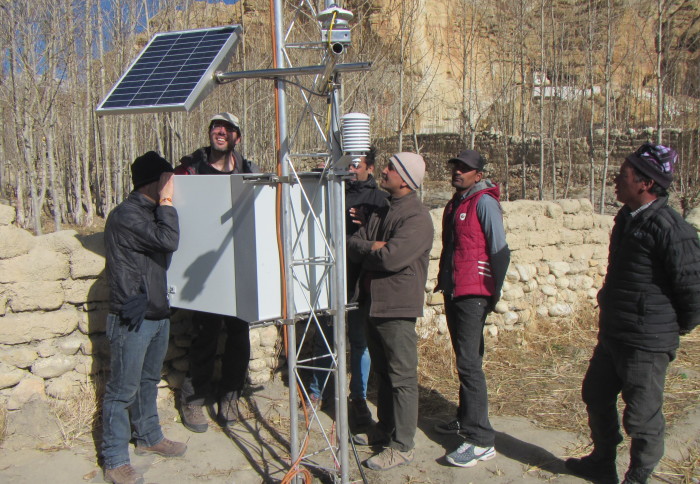EGU Henry Darcy Medal Awarded to Imperial Academic

Professor Buytaert (second left) on site in Nepal
Professor Wouter Buytaert has been awarded the 2022 Henry Darcy Medal of the European Geophysics Union.
The medal recognises scientific excellence and outstanding contributions to the field of water resources engineering and management.
Wouter is Professor in Hydrology and Water Resources in the Department.
His research focuses on the impact of environmental change on the terrestrial water cycle, and the consequences for water resources management and global water security.
It is an achievement that reflects on the work of a large network of collaborators, colleagues, stakeholders and friends Prof Wouter Buytaert
Some of his recent research projects include the development of new sensors to support community-based flood early warning in Nepal and India, assessing the impact of glacier shrinkage on water security in the Peruvian Andes, and developing tools and methods to support the operationalisation of nature-based solutions.
Wouter said, “I am of course very honoured by this recognition, but it is an achievement that reflects on the work of a large network of collaborators, colleagues, stakeholders and friends. I think that our research stands out because of its interdisciplinary nature and its impact on the ground.
“We work frequently with social scientists to study how engineering applications can be embedded in local water management with respect for local practices and customs. For this, we also work closely with local and regional policy makers, such as our long-standing collaboration with UNESCO’s Intergovernmental Hydrology Programme.
This allows us to translate scientific insights into practical recommendations and changes on the ground, and to create real positive impact on people’s livelihoods.”
The award ceremony will be held in April 2022 during the EGU General Assembly in Vienna, Austria. The yearly meeting covers all disciplines of the earth, planetary, and space sciences and is attended by more than 15,000 scientists. In addition to the ceremony, all medallists are invited to give a plenary lecture at the meeting.
Article text (excluding photos or graphics) © Imperial College London.
Photos and graphics subject to third party copyright used with permission or © Imperial College London.
Reporter
Melanie Hargreaves
Department of Civil and Environmental Engineering